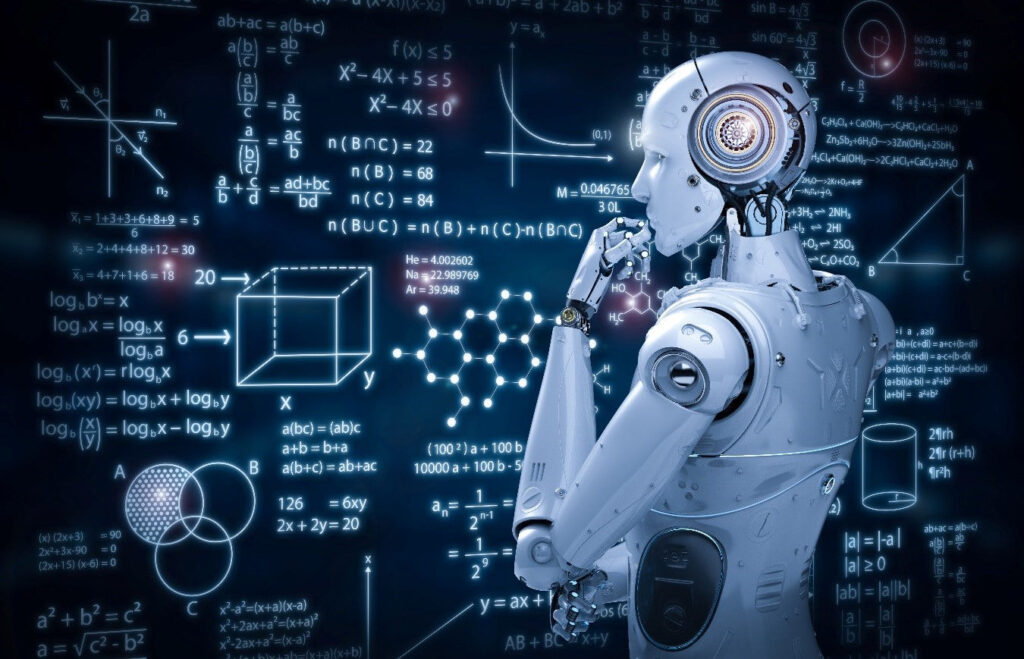It is becoming more and more common to read or hear about how machine learning is changing the world, a branch of artificial intelligence that basically tries to make machines “learn” by themselves.
Advances in this discipline have been coupled with the use of vast amounts of data to train these engines and achieve surprising results in many cases. Are there limitations to what machines can achieve? Of course, but all these examples show that there are areas in which this discipline could change our world forever.
1. Finding habitable exoplanets
A team from the University of Toronto has been inspired by Netflix recommendation algorithms, which also make use of machine learning, to try to accelerate the search for dynamically stable planetary systems.
The idea is to accelerate the search for exoplanets “up to a thousand times faster than with traditional methods,” say those responsible for the study. In fact, it is considering using this algorithm in NASA’s Transiting Exoplanet Survey Satellite mission that starts next year.
2. How to speak a new (non-native) language
Speakers of the same language tend to understand each other without problems, but there are situations in which those who have learned it natively and those who have learned it as a secondary language have problems communicating.
It is precisely in this area that MIT created a large database of phrases in non-native English. The goal was to improve the processing of language machines.
3. Medical diagnostics
One of the areas in which this type of system was expected to achieve a significant impact is medicine, and specifically medical diagnosis in which computers seemed theoretically very capable of giving valid answers.
Self-diagnostic tests carried out by Harvard University showed that the automated systems work better with objective data (X-rays, CTs, clinical analyzes) than with the information that patients give about themselves.
The problem is that doctors can detect and extract these symptoms from patient information to effectively diagnose what is happening to them.
4. Detecting inappropriate content
The overwhelming success of video on the internet, both on YouTube and on Facebook Video and other services, has allowed both live and recorded broadcasts to become a type of content highly appreciated by users. But not all content follows the policies of use of these services in ethical or moral aspects.
That is the reason why Facebook has developed a system that allows detecting violent or nude content during live broadcasts offered by its Facebook Live service, and that automatically blocks them.
5. Suicide Prevention
A team at the Cincinnati Children’s Hospital is working on a system that, after interviewing a series of people, tried to find out if they were people with a certain risk of suicide.
For the analysis, not only the answers were taken into account, but also other sections such as the intonation or the harmony of the answers, something that according to the experts could contribute a lot of information to the system. According to the study, people at risk of suicide were identified with 93% accuracy.
6. Better driving
Autonomous cars are just around the corner, but it may be that before we see these vehicles on the road, we will come across systems based on AI that are designed to prevent our next accident at the wheel.
In this type of application, a camera analyzes our body language and our gestures to try to understand what reactions we have before different maneuvers. According to tests carried out by researchers at Cornell and Stanford, it was possible to predict, for example, lane changes with 90% accuracy. The applications seem very interesting in the field of freight, for example.
7. Machines that talk like us
Another clear segment in which machine learning can bring clear advantages is its ability to aid communication between humans and machines.
Training an artificial intelligence system with dialogues of all kinds results in an algorithm capable of maintaining a relatively coherent conversation, something that Google demonstrated from classic movie dialogues. This type of application will be increasingly striking, especially now that all the great ones seem to want to put their particular version of the Amazon Echo in our living room.

8. Music that you’ll love
Google may be the unwitting protagonist of this article, but one of its top managers in this area was already telling us that “there is no department at Google that does not benefit from machine learning.” The practical applications for users are many and varied, but among the most practical and recent is the one that affects Google Play Music, its music streaming service.
This new system makes use of learning systems to discover the type of music we like and mix it with data such as our location or activity and even the state of the weather to create a personalized playlist. These recommendations go beyond what other systems try that are only based on what we like or hear frequently, and the analysis of those additional factors (you cannot activate this option if you prefer to protect your privacy) can be a plus for many users.
9. Social networks with less spam and less fake news
The problem with the most popular social networks is that their own philosophy causes that there is a lot of false content that many users can mistake for legitimate content. Spam and the recent phenomenon of fake news have shown that there is a long way to go here, but algorithms may also offer solutions.
This is what they think at least on Twitter, where their BotMaker system has been trying to fight spam on this microblogging network for a couple of years. Those responsible then highlighted that the system had been able to reduce spam posted on Twitter by 40%, and this is joined by recent efforts by Facebook to deal with the fake news scandal. Mark Zuckerberg’s company will use machine learning systems to detect this type of news, although there will be more resources to avoid problems such as those that have occurred recently.
10. Compose classical music
One might believe that the art field is safe from artificial intelligence for the time being. Intuition and the type of factors that come into play in the creation of any artistic piece are something that, for now, did not seem within the reach of AI systems, but there are those who are challenging that idea.
DeepBach is a system that, after learning the way in which Bach’s cantatas were composed, is now capable of creating pieces that imitate these compositions and even take existing songs to harmonize them under the same style. It is not the only project in this sense, and we recently interviewed Francisco Vico to talk about Iamus, a computer cluster capable of composing contemporary music that has in fact already been performed by the London Philharmonic.
11. More and better medicine
Among those practical applications that speak of a better future is that of research in the pharmacological field: the discovery of new drugs could be much more efficient and faster thanks to the use of artificial intelligence systems and, specifically, machine learning.
A recent study, for example, made it possible to minimize and even avoid the side effects of a drug before carrying out clinical tests on human beings, something that significantly reduces the cost of this type of process. Unsurprisingly, Google is also doing research in this area in collaboration with Pande Lab, a laboratory at Stanford University, and there is a good set of similar initiatives that we hope will help treat all kinds of diseases sooner and better.



